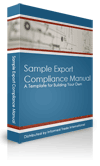The latest on the US/India techno scnadal from th Daily News and Analysis out of Mumbai, India…
NEW YORK: Cirrus Electronics founder Parthasarathy Sudarshan, 46, was arraigned before US Magistrate Judge Deborah Robinson on Tuesday on charges of illegally smuggling dual-use technology linked to the development of missile and aerospace systems to three Indian state-run agencies.
Sudarshan and another Cirrus executive Mythili Gopal, 36, were both arrested on March 23 based on a 15-count federal grand jury indictment. The indictment also charged two other Cirrus employees, AKN Prasad of Bangalore and Sampath Sundar of Singapore, for their roles in acquiring US i960 microprocessors for the Tejas, a fighter jet being developed by India’s Aeronautical Development Establishment.
“These arrests put a network of technology smugglers out of business and demonstrate that we have no tolerance for weapons proliferators who illegally supply entities with weapons technology,†said Assistant Attorney General Kenneth L Wainstein.
Cirrus allegedly shipped Static Random Access Memory computer chips that are designed to withstand extreme heat, capacitors and resistors to Singapore, and then clandestinely re-exported them to India’s state-run Vikram Sarabhai Space Centre, Bharat Dynamics and the Aeronautical Development Establishment.
US prosecutors have built their case against the defendants with the help of the FBI and US commerce, customs and immigration agencies. If convicted of the charges, Sudarshan could face up to 10 years in prison, while Gopal up to six years. Prasad and Sundar face likely sentencing ranging from six to eight years if convicted. Â
“Networks that procure US technology whose export is restricted to combat proliferation and then seek to evade US export and licensing regulations undermine our national security,†said US Attorney Jeffrey Taylor indicating a tough stand. Opponents to the Indian nuclear deal are using this case to needle the Bush administration. However, State Department spokesman Sean McCormack stressed that the US and India have “strong†ties and “this will not change†because of the case.
“This is a law-enforcement matter that began before our efforts to conclude a civilian nuclear cooperation agreement,†said McCormack. “The arrests of these individuals are not connected to our efforts to conclude an agreement.â€Â
Posted on April 7th, 2007 by keeton
Filed under: Uncategorized | Comments Off on Update On Indian Government Espionage Case – Cirrius Chief Faces 10 Years



